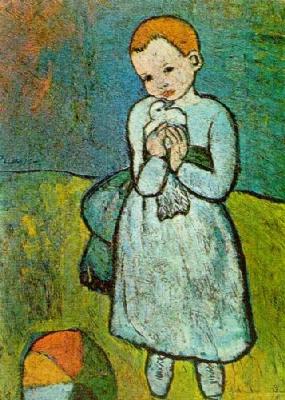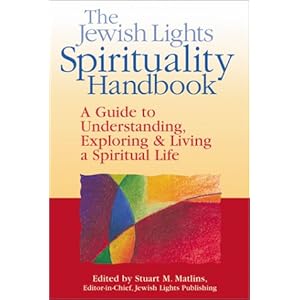My family going back several generations were Lanarkshire miners. By the time Margaret Thatcher became Prime Minister most of the deep mines in Scotland were either closed or closing. My children were born into a country in which we struggled with the three day week, power cuts, the oil crisis with prices going beyond what any of us thought would ever be affordable again, inflational spirals, and then the Winter of Discontent. That so apt Shakespearean phrase was filled with all the constrained but difficult to contain energy of resentment, an anger charged lightning that had to find a point of discharge.
 The debate surrounding whether Margaret Thatcher ruined the country or saved it was always going to rage after her death. Indeed, rage is perhaps a word that encapsulates the emotional and visceral responses generated by the policies of successive Thatcher Governments. Either the rage and outrage of those who opposed monetarism, privatisation, the forefronting of nuclear threat, the dismantling of heavy and manufacturing industries replaced with financial and service industries, or the rage of those who thought Union power, Nationalised industry, the threat of Russia and Communism, and other social or socialist policies were forcing the country into recession or social regression.
The debate surrounding whether Margaret Thatcher ruined the country or saved it was always going to rage after her death. Indeed, rage is perhaps a word that encapsulates the emotional and visceral responses generated by the policies of successive Thatcher Governments. Either the rage and outrage of those who opposed monetarism, privatisation, the forefronting of nuclear threat, the dismantling of heavy and manufacturing industries replaced with financial and service industries, or the rage of those who thought Union power, Nationalised industry, the threat of Russia and Communism, and other social or socialist policies were forcing the country into recession or social regression.
No wonder feelings are once again raw with hatred or admiration, resentment or gratitude. It is interesting that those who speak most volubly and positively of the Thatcher legacy mostly do so from positions of power, wealth and social security – the phrase is deliberate. Note, Social Security is a positive idea, Benefit System is much less affirming and supportive of human need. I mention the point because amongst the most influential changes Margaret Thatcher brought to British politics was not only political divisiveness but a discourse and rhetoric that made a virtue of polarisation rather than negotiation, that edefaulted to compulsion over consensus, and that placed in the political lexicon the threefold No! No! No! as the term of choice when defending self-interest.
 The creation and validation of greed as a social virtue, the morally naive claim that creation of wealth is not wrong (The Sermon on the Mound) and that it is the use of wealth that raise the significant ethical questions, lacked, as all political ideologies do, an adequate doctrine of hamartiology. Hamartiology is the area of theology that deals with human sinfulness, fallibility, and the creative genius of the human mind to create and worship our own idols. In recent decades the phrase structural sin has come to refer to our ability to build into social structures of power and policy, those same self-interested drives that underlie greed, dishonesty, matter of fact bottom line thinking that delibedrately leaves out the human cost because that is a subjective skewing of what needs to be an objective assessment in order to get value for money, the cheapest price, the most for the least output, cost or effort.
The creation and validation of greed as a social virtue, the morally naive claim that creation of wealth is not wrong (The Sermon on the Mound) and that it is the use of wealth that raise the significant ethical questions, lacked, as all political ideologies do, an adequate doctrine of hamartiology. Hamartiology is the area of theology that deals with human sinfulness, fallibility, and the creative genius of the human mind to create and worship our own idols. In recent decades the phrase structural sin has come to refer to our ability to build into social structures of power and policy, those same self-interested drives that underlie greed, dishonesty, matter of fact bottom line thinking that delibedrately leaves out the human cost because that is a subjective skewing of what needs to be an objective assessment in order to get value for money, the cheapest price, the most for the least output, cost or effort.
Successive Governments after Margaret Thatcher's fall in 1990, have built on that legacy, with a financial free for all that became financial freefall, and now an austerity programme justified by blaming others, and fuelled by that same resentment against those who benefit from our ( note, our – not the Government's) Social Security system and our ( note, OUR ) National Health Service.We still lack an Hamartiology adequate to our economic ambitions, mistakes and inhumanity.
All that said – an elderly woman has died and certain humane customs ought rightly to follow. The scale and cost was always going to be problematic, if only because of security, settling of scores, and what she herself called 'the oxygen of publicity', even more important and immediate in a culture used to surveillance, digital technology and the uniquitous hand held camera options. I hope her funeral takes place with dignity, honesty, and the proper summing up of a human life, believing as I do a truer, sterner judgement, and a more generous mercy and justice than mine, will prevail and speak the final words.
At the beginning of her Premiership, Margaret Thatcher quoted the prayer of St Francis of Assisi, including the words "Where there is discord, may we bring harmony". Perhaps instead of taking ideological sides, or insisting that her impact on our personal life story is the decisive factor in the debate about her achievements, the whole of that prayer, in its more familiar text, should be set against her political career, her life, and her legacy.
Lord, make me an instrument of your peace.
Where there is hatred, let me sow love;
where there is injury,pardon;
where there is doubt, faith;
where there is despair, hope;
where there is darkness, light;
and where there is sadness, joy.
O Divine Master, grant that I may not so much seek
to be consoled as to console;
to be understood as to understand;
to be loved as to love.
For it is in giving that we receive;
it is in pardoning that we are pardoned;
and it is in dying that we are born to eternal life. Amen
.




